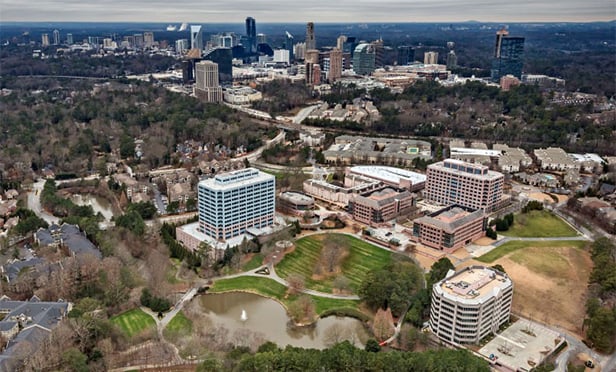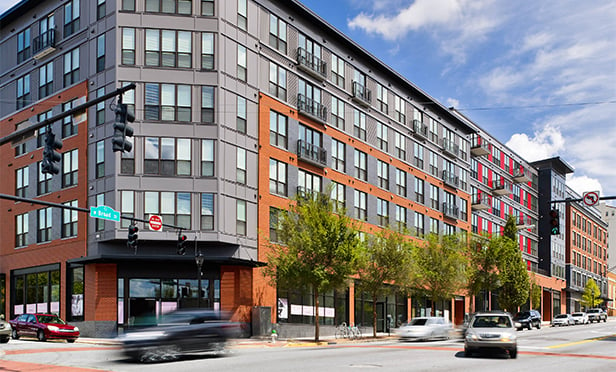LOS ANGELES-Dunkin' Donuts is entering into Southern California in a big way over the next few years. GlobeSt.com spoke with Grant Benson, CFE, VP of franchising and business development, Dunkin' Brands, about the company's plans.
GlobeSt.com: Why haven't you been in California before?
Grant Benson: In all honesty, we had a smattering of stores in California at one time. Those legacy units are no longer there. One of the things that we've really decided over the last five, six years is that when we make a decision to go into a market, we go in with a comprehensive plan to win. We go in with scale and a comprehensive marketing plan. That's not able to be done if it's done on a shotgun approach. We're on a westward march, East to West, selling franchises and gaining partnerships over the last five, six years. In that contiguous wave, California was next up. And now we believe we've got the plan and support model, including the supply chain in place, to win.
GlobeSt.com: What other Western states are you in?
Benson: Most recently, we opened a substantial number, about 50, in the Arizona market. There's probably half that many in Las Vegas, and Denver, Salt Lake City have been sold. That puts us into the California market next up on the list of markets.
GlobeSt.com: Will there be anything different about the California stores?
Benson: We will be true to who we are as a brand. We recently rolled out a new design image across the entire Dunkin' system, four separate designs that franchisees can choose from, based on their trade area and community. There may be other things that we may consider, particularly in regard to a regulatory issue here or there. But we're going in with the traditional Dunkin' and staying true to our roots. We are very comfortable that we'll more than compete.
GlobeSt.com: Do you own the land that your franchisees are on?
Benson: We don't own the land. Nearly all our development is franchisee development. They may own it, but in most cases, they lease the property. There are very few situations where we own the land.
GlobeSt.com: Describe your ideal location for a standalone store.
Benson: Drive-thrus are important to us from the standpoint of convenience and speed of service. So having either a freestanding building or preferably, in many cases, an end-cap of a strip center. Those are very, very effective locations for us. And we use the common drivers of retail activity, residential backup, high traffic. A lot of the traditional fast food demographics from siting are important.
GlobeSt.com: Who's your competition?
Benson: Clearly, McDonalds is a key competitor, given their real estate and success with breakfast sandwiches. There's coffee competition from Starbucks, Caraboo and others. Convenience stores can be as well. They've stepped up their game in both coffee and snack segments. So there's no shortage of competition. We believe that our value proposition, the quality of the products and speed of service and the fact we've been around and have a legacy that is built to last will play well.
GlobeSt.com: What about your non-traditional locations? What are you looking for?
Benson: Even within the traditional environment, we've got a number of different concepts. The free standing, the end cap, we're going with gas convenience partners who will lease space to work within their facility. In the non-traditional, we're already at Camp Pendelton Marines base. We've had a very strong-performing store there for a few years. We can be a little more flexible with (non-traditional outlets). They can be a couple hundred square feet or a kiosk. We are looking at the first one in Barstow Station, and there are others coming in military bases, hospitals, colleges and universities and all places where the brand can serve that captive audience.
GlobeSt.com: What are your plans beyond the traditional Dunkin' Donuts role? Are you trying to expand to an all-day concept?
Benson: We have a PM platform that would include savory products, some limited sandwiches and wraps and that type of thing. But to say we're trying to be a dinner replacement wouldn't be accurate. But we are extending beyond breakfast and bagels and donuts and baked goods, and are offering those PM snack-type items. They are profitable and a good value and will continue to have that represemt a growing portion of the menu.
GlobeSt.com: How many jobs are created at the average outlet? And do you have a goal in mind for the number of stores you'll role out?
Benson: The average Dunkin' Donuts probably employs 20 to 25 part and full-timers. It varies based on volume. That's a rough average. As for goals, I want to be careful as to what's been stated publicly. What I would say is our approach to development is one that focuses in waves. You're read about three territories sold. Those territories will have an initial commitment of units that would likely be developed over probably a six to seven-year period that's just the start of what development can occur. Those initial stores would be in the stronger trade areas. What we've found over time is we're able to continue to penetrate and provide franchisees additional opportunities to grow with other, similar locations in a second wave in secondary or tertiary locations that fill in pockets and the penetrations within those areas can be significantly above what was originally sold. That takes time.
© Touchpoint Markets, All Rights Reserved. Request academic re-use from www.copyright.com. All other uses, submit a request to [email protected]. For more inforrmation visit Asset & Logo Licensing.






